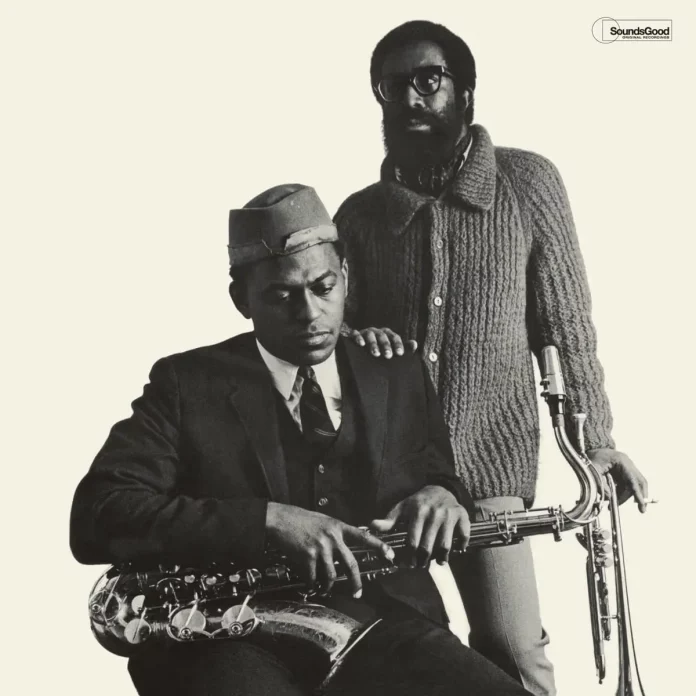After a couple of years cutting his teeth with Cecil Taylor, 25 year-old Archie Shepp linked up with Bill Dixon, an earlier associate of Taylor and jazz director for Savoy for a short while.
At the time the influence of Ornette Coleman was strong, and here they assimilate his work, fashioning it according to their own playing. The pieces have a standard, formal structure; it’s the harmonic freedom that makes the difference.
Dixon is often quite subdued, with a flattened mid-to-low register, whilst Shepp explores the full range of the tenor, methodically building his solo statements. The growling harshness and intensity is interspersed with a warm breathiness which was to increasingly be a trademark in his continuation of the tenor tradition.
Coleman’s Peace shows the contrast – Dixon follows the melodic line, understated, even reserved; Shepp forceful and assertive. Bassist Don Moore and drummer Paul Cohen keep the momentum going, in keeping with the spirit and rhythmic base of the original and alluding to the melody. Among Dixon’s compositions, Trio has a themed riff for the ensemble to work from, and Quartet sees the trumpeter playing more decisively, matched by Shepp’s strength.
There’s a tongue-in-cheek element to Bernstein’s Somewhere, although the implication and sentiments of the song shouldn’t be overlooked. Dixon’s solo is comparatively conventional, whilst Shepp, threatening to drop into a cocktail lounge vibrato, distorts the melody, varying his tone with abrupt changes.
There’s also the contrast between the more sparing quartet tracks and those of the New York Contemporary Five, an indication of the direction Shepp would take, working with more horns in his line-ups. The tone of Don Cherry’s smaller horn is clearer than Dixon’s, or that of Ted Curson, more precise and emphatic; John Tchicai uses unexpected flights nearer to the Ornette style of delivery. Shepp’s presence is strong; he’s closely aware of the others as he introduces a closing theme on Where Poppies Bloom.
This was a clear indication of the way the music was moving, towards what was to be termed the New Wave. There’s a lot to recommend it. This material has been released recently on CD (Fingerpoppin’ Records 117026) with extra tracks by the Bill Dixon Septet (without Shepp), but if you want vinyl, this is for you.
Discography
(1) Trio; Peace; (2) Consequences; (1) Quartet; Somewhere; (3) Where Poppies Bloom (Where Poppies Blow) (46.40)
(1) Shepp (ts); Dixon (t, flh); Don Moore (b); Paul Cohen (d). NY, October 1962.
(2) Shepp (ts); Don Cherry (pocket cnt); John Tchicai (as); Ronnie Boykins (b); Sunny Murray (d). NY, 5 February 1964.
(3) As above, Ted Curson (t) replaces Cherry. Same date.
SoundsGood 66409
















